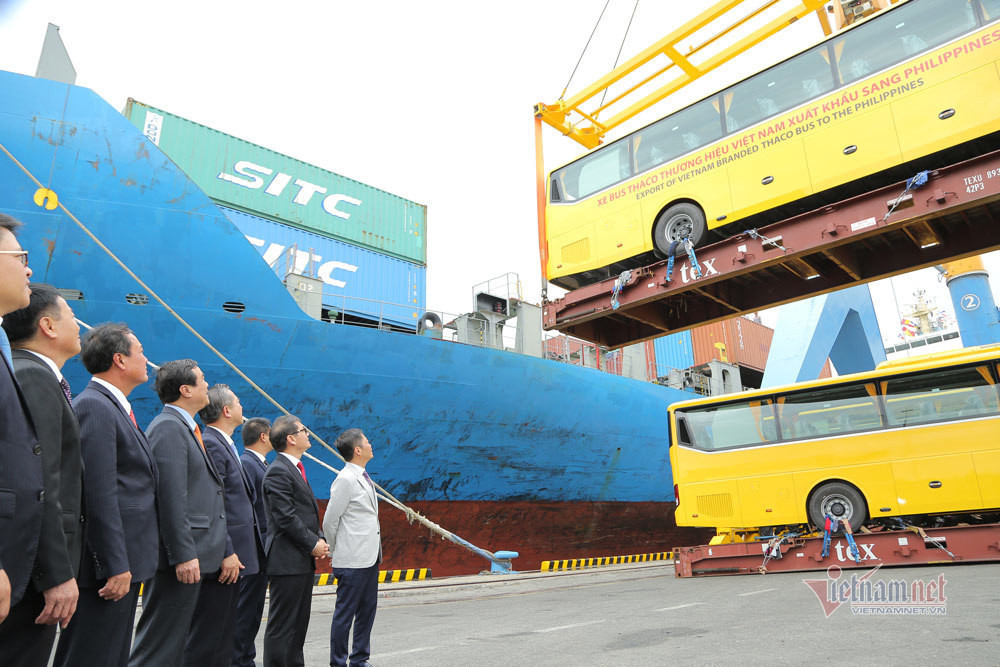
Politburo member and Chairman of the Party Central Committee's Economic Commission Tran Tuan Anh 23 times repeated the word ‘enterprise’ when he reported about Resolution 29 before the Politburo members and members of the Secretariat of the Party Central Committee.
“The contingent of intellectuals and businesspeople are at the forefront and pioneer in the industrialization and modernization of the country,” he said in introductory words at the conference discussing the resolution on continuing the acceleration of the industrialization and modernization of the country by 2030, with a vision towards 2045, held some days ago.
The goal of industrialization and modernization of the country by 2020 was put forward at many Party Congresses, but the goal has failed. Meanwhile, economic growth has decreased and cannot reach the goal and the country is facing a risk of lagging behind and falling into the middle-income trap.
Therefore, Resolution 29 is the first separate resolution of the Party about industrialization and modernization since doi moi (renovation) in 1986.
In the newly released resolution, the role of enterprises and businesspeople is mentioned as a pillar to implement industrialization and modernization. Domestic enterprises, including state-owned enterprises (SOEs) and private enterprises, are considered the ‘major driving force’, while intellectuals and businesspeople take the lead.
This is a very new awareness. The approach about the role of enterprises and businesspeople for the industrialization and modernization process bears progressive spirit and is practical following a lot of experience in building the market economy in Vietnam. Even in Resolution 10-NQ/TW in 2017, the private sector was only determined as an ‘important motivation’ in the economy.
Affirming the role of businesspeople in industrialization, expert Tran Dinh Thien, said: “Now private enterprises have begun to be recognized for their role of leading the economy, together with SOEs."
Vingroup, for example, has contributed to the development of modern cities, improved the living standards of people and turned the Vietnamese people’s dream of manufacturing automobiles into reality, and even compete overseas.
Thaco has created a world-class automobile manufacturing complex which churns out automobiles of many brands. Sungroup and Novagroup have created modern cities and resorts to attract international travelers. FPT has reached the most competitive markets in technology such as the US, EU and Japan. Meanwhile, the state-owned group Viettel has not only conquered the domestic market but also foreign markets as well.
“The common thing of all Vietnamese businesspeople is the aspiration to develop the country,” Thien said.
Since the private sector was recognized after doi moi and institutionalized after the 1999 Enterprise Law and many other laws, the sector has been growing well. However, over many years, the private sector has not grown as expected with the contribution just accounting for 10 percent of GDP over the last two decades.
Resolution 10-NQ/TW in 2017 confirmed that the private sector still cannot implement the role as an important motivation of the economy.
Vietnam’s property rights rating is just equal or a bit higher than that of lower average-income countries, and there is a big gap with high-income countries.
According to the Vietnam Confederation of Chamber and Industry’s (VCCI) provincial competitiveness index (PCI) report, up to one-quarter of enterprises are inspected at least twice a year. Dau Anh Tuan, deputy secretary general of VCCI, noted that this is one of the reasons why many enterprises don’t want to grow.
Tran Dinh Cung, former head of the Central Institute of Economic Management (CIEM), said that enterprises are still weak and have not fully recovered after Covid-19, while production and business are getting more and more difficult, even more than 10 years ago.
Regarding the handling of wrongdoing cases related to businesspeople recently, Cung said it is necessary to differentiate the functions and roles of the owners of businesses and the businesses, especially public companies, because these are two different entities with legal responsibilities.
The viewpoint of "not criminalizing civil and economic relations" was repeated by the Prime Minister recently as an orientation in management to encourage authentic businesspeople who are facing many difficulties after the pandemic.
Tu Giang